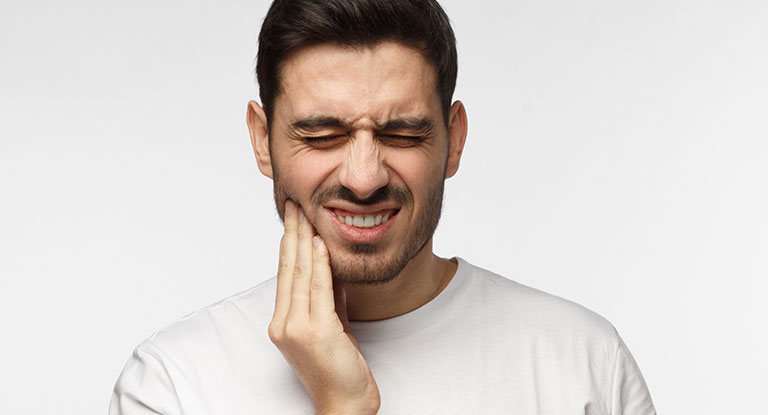

Tooth sensitivity is a common dental problem affecting millions of people worldwide.
This sensitivity can be noticed on the reaction to either cold or hot substance. It can be discomforting — arises as a result of cracks, cavity or gum diseases.
2.0 Who suffers from sensitive teeth?
3.0 What causes sensitive teeth?
3.1 Tooth abrasion
3.2 Dental erosion
3.3 Receding gum
3.4 Tooth bleaching
3.5 Cracked tooth
3.6 Teeth grinding
3.7 Gum disease
4.0 When are teeth more likely to be sensitive?
5.0 Things I should avoid if I have sensitive teeth?
6.0 Do I need to go and see my dentist?
7.0 What treatment can the dentist offer?
8.0 Is there anything I can do to treat the sensitive tooth at home?
9.0 How can I prevent sensitive teeth?

When you have a mild twinge to severe discomfort that continues for several hours, it is said to be a sensitivity. This condition can be an early sign of more serious dental problems.
A lot of people suffer from sensitive teeth; it can happen to anyone and at any time. However, it is more common in people aged 20 to 40 years of age, and it can also affect people in their early teens more so those above 70 years of age. Research has shown that women are prone to have sensitive teeth than men.
The visible part of the tooth has a layer called enamel that protects the soft inside, it is the called the dentine, and it is located beneath the tooth.
A tooth can be sensitive if the dentine is exposed, and this usually occurs where the tooth and gum meet because the layer of enamel is thinner at that end.
Pockets can be created around the tooth in gum disease, this makes the area difficult to clean, and the problem gets worse.

Teeth are more likely to be sensitive after eating or drinking something cold; it can also occur with hot foods and drinks — it may also occur when cold air touches your teeth.
Some people also experience teeth sensitivity when they take in acidic or sugary foods and drinks. The pain may be irregular at first, but it can become worse at times.
If you discover that certain cold or hot foods and drinks —acidic or sweet substance, like ice cream cause sensitive teeth, it would be wise of you to avoid them.
On your discovery, of a sensitive tooth, You can also use warm water to brush your teeth instead of cold water from the tap. Also, remember to brush your teeth regularly to avoid, making the tooth sensitivity worse.
Yes, you should see a dentist immediately, especially if you have started treating the sensitive teeth at home for at least 3 weeks and without any sign of improvement.
At a dental examination by Our experienced dentist, the symptoms will be discussed, and a close look will be taken at the tooth to find the actual cause of the sensitivity. We will also look for the best way to treat it effectively.
The affected teeth can be treated using special de-sensitising products; this will help relieve the symptoms of sensitive teeth.
Fluoride gels may also be applied — varnishes or rinses on the teeth. These paintings on the teeth are done every 1 – 2 weeks. Do ensure to meet your regular appointments.
This treatment will help your teeth build-up protection. It may take time, and you might have to attend several appointments. If all these do not help, then we might need to seal or fill around the neck of the tooth where the tooth and gum meet. It will help cover exposed areas, and in severe cases, we may need to fill the root of the tooth.

There are many brands of toothpaste in the market that can ease sensitive teeth, also brushing your teeth twice daily —a rub on the sensitive areas using fluoride toothpaste also helps.
This toothpaste can take days to several weeks to function, but this depends on the brand.
Contact us on 020 71834091 or visit us at Harley Street, London. We can help suggest the best products you can choose from the market.
You can prevent sensitive teeth by following some healthy routine dental care such as:
Use a soft-bristled or medium-bristled brush toothbrush to brush your teeth and do it in a gentle circular motion.